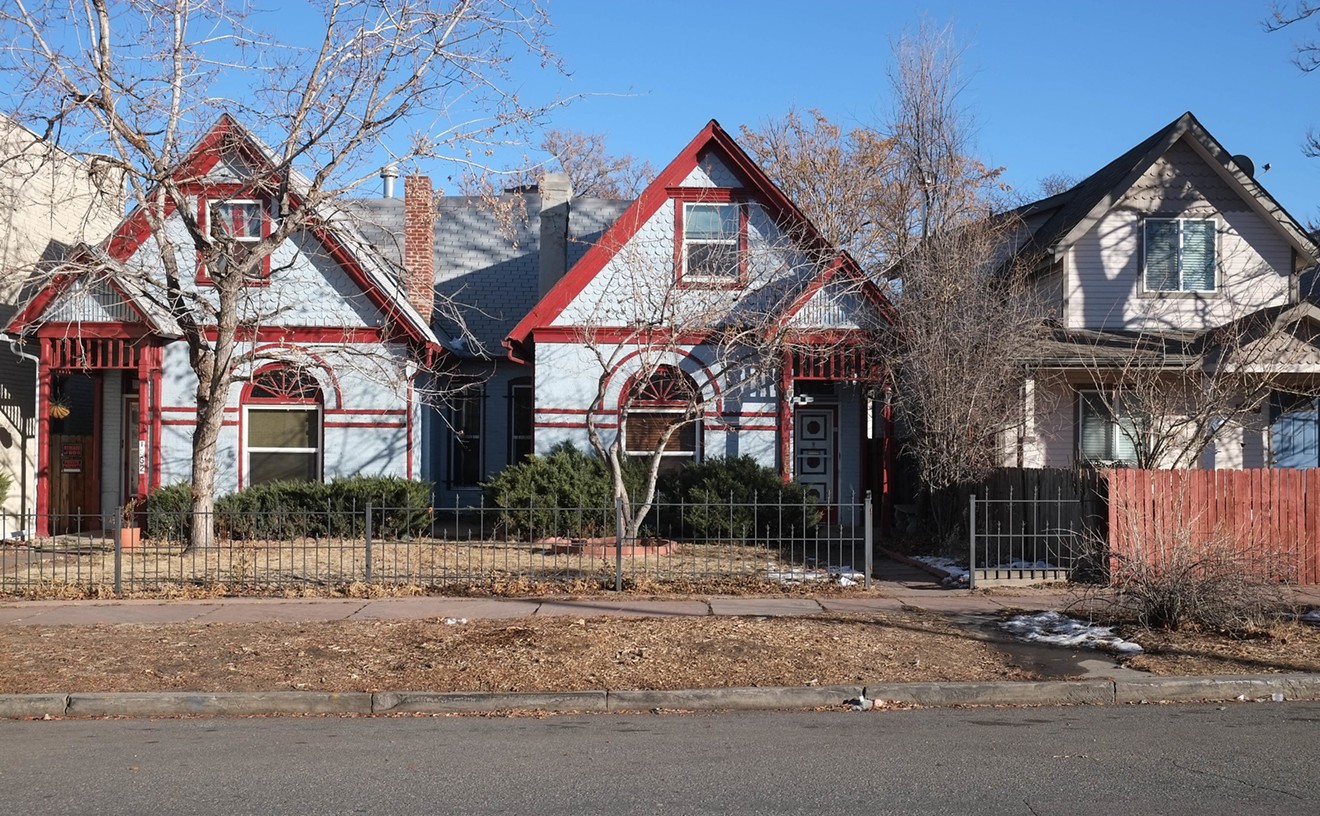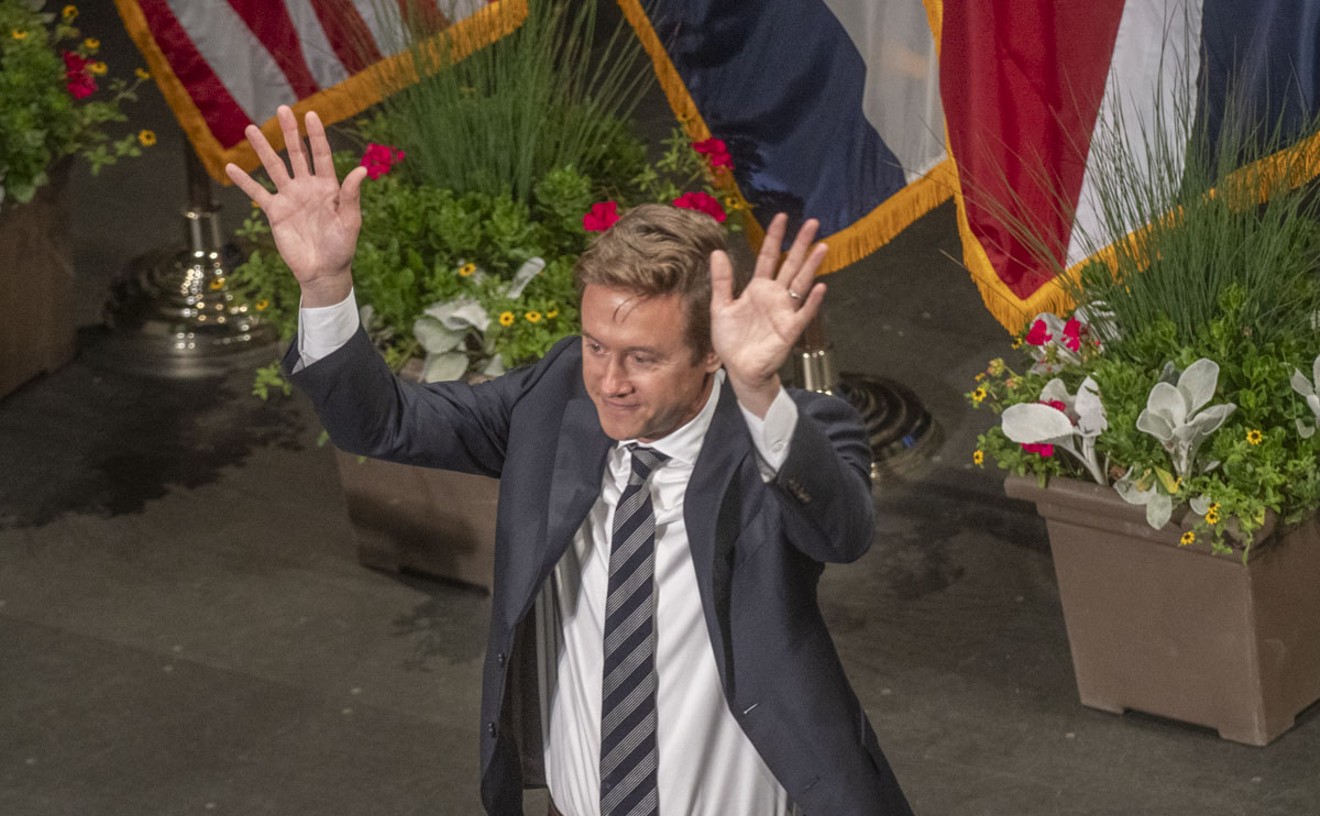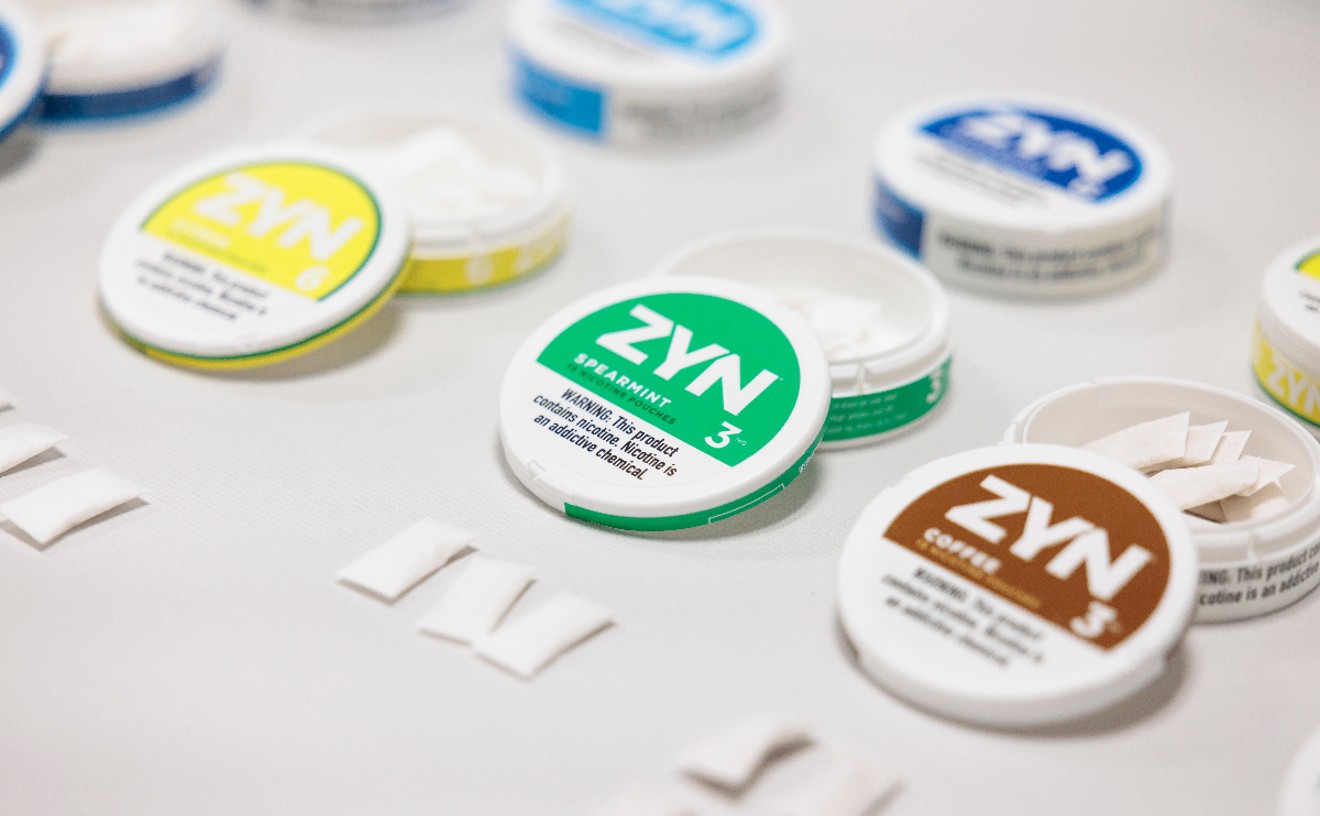The first Colorado Polling Institute survey on Denver's future is out, with 44 percent of respondents saying the Mile High City is currently on the right track, another 44 percent saying it's heading in the wrong direction, and 12 percent not offering an opinion.
As for who's funding the CPI research, results are still pending.
“We follow all IRS guidelines for disclosures but don't discuss donations or expenditures in the media,” says Curtis Hubbard, a Democratic consultant who is a senior advisor with the organization.
Social entrepreneur and investor David Carlson founded the CPI earlier this year, adding Republican consultant Tyler Sandberg as a senior adviser. On its website, the institute says it is funded by “Colorado civic, philanthropic and business leaders independent of any campaign or political party.”
“We’ll be relentlessly transparent with our findings and dedicated to high-quality research,” Carlson pronounces in a press release about the first poll. But apparently not when it pertains to the people footing the bill for that research.
The Colorado Polling Institute's founding board, which includes public school nonprofit leader TeRay Esquibel and former Denver City Council rep Kendra Black, plans to use CPI to put out quality information on where people in the state stand on certain issues.
For the debut poll, the CPI surveyed over 400 likely 2024 general election voters in Denver on August 17 and 18, to take the city's political temperature. It was conducted by polling organizations Cygnal and Aspect Strategic.
“It's an interesting time for Denver,” says Kevin Ingham, a pollster with Aspect Strategic. “The city's still recovering from pandemic-induced challenges. Denver has its first new mayor in twelve years. … Half the city council members are new. This is really a time of transition for the city, and this survey came right as Denver's going through that.”
Ingham points out that media polling, which used to be much more common, is now too expensive for many organizations to undertake. The Colorado Polling Institute hopes to step into that role.
“It first and foremost is to help inform decision-making, and that's through trustworthy, nonpartisan public-opinion research,” Hubbard says. “We noticed that there was a lack of that in the public square and felt like it would be worthwhile to bring together people from across the political spectrum.”
While the institute won't reveal the source of its donations, it does say who it won't take money from: political parties, political action committees or corporations. It's a pending 501(c)(3) nonprofit, but the IRS does not require such organizations to disclose the names of their donors.
The CPI is not as resistant with its polling results, which show that housing is at the top of voters’ minds.
Homelessness and housing affordability were the top two issues people said they wanted the city to address. “The mayor has said that homelessness was going to be his top priority,” Ingham says. “It's clear to me that voters agree with that priority.”
Crime and public safety and the cost of living were the other two significant issues. People ages 18 to 29 prioritized housing affordability and cost of living over homelessness; for those over 65, crime and public safety tied with housing affordability and homelessness.
Of those surveyed, 65 percent said that the cost of housing was a source of significant or some financial strain.
The poll also took on other big questions in Denver, including the state of downtown’s recovery from the pandemic. People were more pessimistic than optimistic about that effort, although two-thirds said they feel safe or somewhat safe in the city.
The poll also included questions regarding the city's election setup. Sixty-three percent said they supported reducing the time officials could spend in office from three consecutive terms to two. And 48 percent support ranked-choice voting — with Republicans and older men showing the most hesitation on switching to such a system.
That wasn’t the only category where age played a part, Ingham says.
“There are two trends you might be able to identify with the survey, the one which was ideological but the other is generational,” he explains. “You can see that trend throughout the survey as you look through the results, where you have a more optimistic and upbeat younger contingent and a more concerned older one.”
All of the organizations that the poll asked about had positive favorability, with Denver International Airport ranking the highest in net favorability, at plus-48.
But how can that be, when so many people complain about the airport?
“When it comes to DIA, we're asking people just, ‘How do you feel about your airport?’” Ingham says. “It’s not specific things about how it operates or how people feel about the Grand Hall construction or anything like that. We're just asking how they feel about the airport. If we were to dig down deeper and ask voters more direct questions about how the airport operates, you might get different results.”
Generally, he concludes, it seems people still have a “place in their heart” for DIA.
During Mayor Mike Johnston’s brief time in office, he’s earned a plus-28 net favorability rating. His homelessness plan has gained 34 percent approval, according to the poll results, but 41 percent of people said they haven’t heard enough to actually have an opinion.
Residents do know enough about encampment sweeps to decide how they feel, the poll shows, with 65 percent of survey respondents registering their support. People 18 to 29 and self-identified socialists accounted for much of the 22 percent who said they oppose sweeps.
The Colorado Polling Institute plans to conduct regular polling on opinions in Denver, the metropolitan area and statewide. Next week, it will release the results of a poll on Denver Public Schools, Hubbard notes.
“We try to make sure that our surveys are representative,” Ingham says. “And that it is representative of not just the loudest voices of maybe the people who are on Twitter, or X, or whatever it's called now, but the people who still participate in the system and have an opinion about how they want to see their government function but may not have the same megaphone to speak through.”
[
{
"name": "Air - MediumRectangle - Inline Content - Mobile Display Size",
"component": "12017618",
"insertPoint": "2",
"requiredCountToDisplay": "2",
"watchElement": ".fdn-content-body",
"astAdList": [
{
"adType": "rectangle",
"displayTargets": "mobile"
}
]
},{
"name": "Editor Picks",
"component": "17242653",
"insertPoint": "4",
"requiredCountToDisplay": "1",
"watchElement": ".fdn-content-body",
"astAdList": [
{
"adType": "rectangle",
"displayTargets": "desktop|tablet"
},{
"adType": "rectangle",
"displayTargets": "desktop|tablet|mobile"
}
]
},{
"name": "Inline Links",
"component": "18838239",
"insertPoint": "8th",
"startingPoint": 8,
"requiredCountToDisplay": "7",
"maxInsertions": 25
},{
"name": "Air - MediumRectangle - Combo - Inline Content",
"component": "17261320",
"insertPoint": "8th",
"startingPoint": 8,
"requiredCountToDisplay": "7",
"maxInsertions": 25,
"watchElement": ".fdn-content-body",
"astAdList": [
{
"adType": "rectangle",
"displayTargets": "desktop|tablet"
},{
"adType": "rectangle",
"displayTargets": "desktop|tablet|mobile"
}
]
},{
"name": "Inline Links",
"component": "18838239",
"insertPoint": "8th",
"startingPoint": 12,
"requiredCountToDisplay": "11",
"maxInsertions": 25
},{
"name": "Air - Leaderboard Tower - Combo - Inline Content",
"component": "17261321",
"insertPoint": "8th",
"startingPoint": 12,
"requiredCountToDisplay": "11",
"maxInsertions": 25,
"watchElement": ".fdn-content-body",
"astAdList": [
{
"adType": "leaderboardInlineContent",
"displayTargets": "desktop|tablet"
},{
"adType": "tower",
"displayTargets": "mobile"
}
]
}
]











